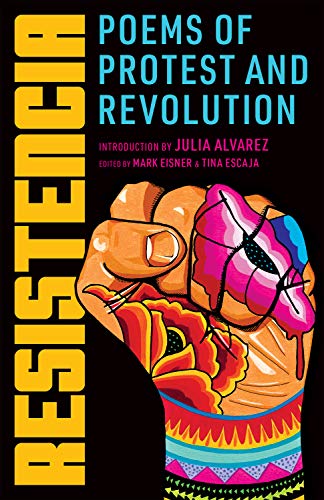
Last month Tin House published an anthology that feels poignantly tailored to the times—Resistencia: Poems of Protest and Revolution, edited by Mark Eisner and Tina Escaja. Featuring fifty-four poets, translated from Spanish and Portuguese, the book brings together, as Julia Alvarez writes in her introduction, “a diverse brigada Américana, armed with weapons of mass creation.” Their voices—and verses—are impassioned and aggrieved, sometimes irreverent, and always moving. At bottom, they are all pushing toward hope, toward a better world that we all need.
You have reached your article limit
Sign up for a digital subscription and continue reading all new issues, plus our entire archives, for just $1.50/month.
Already a subscriber? Sign in




